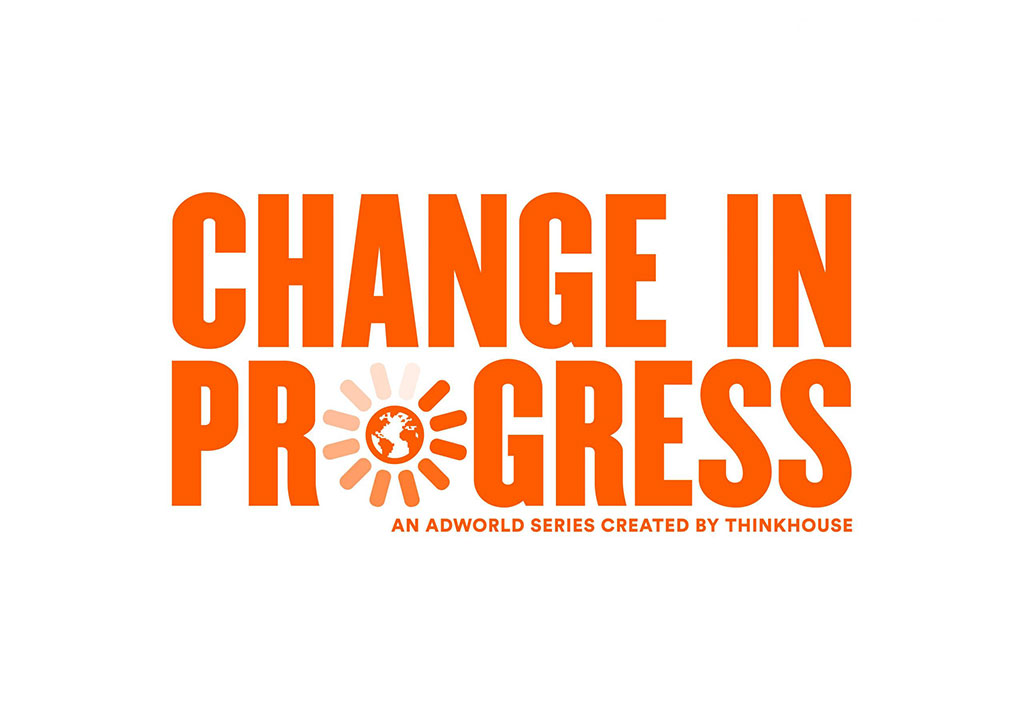 Welcome to the second instalment of our Change in Progress series, a collaboration between Thinkhouse and Adworld.ie.
Welcome to the second instalment of our Change in Progress series, a collaboration between Thinkhouse and Adworld.ie.
This issue has been led by Laura Costello, strategy director, Purpose & Planet, and Claire Hyland, head of The Youth Lab, part of Thinkhouse’s PLANET Team and examines the controversial topic of greenwashing in all its guises.
As the value of sustainability continues to grow (a 5 year McKinsey study reveals a 1.7% disproportionate growth for products with ESG claims), so too have marketing efforts around it. With this comes significant risk – both legal and reputational. This has sparked an ongoing learning journey where both brands and agencies alike are navigating the changing landscape by establishing responsibilities and the right support regarding essential communications around environmental breakdown.
It feels sisyphean to keep up with sustainability communications guidelines in today’s landscape. It isn’t easy – nor should it be. The pace of change is rapid as new policy development is updating guidelines around making ‘green’ claims struggles to keep up with the sophisticated communications as they are developed to target increasingly concerned brand audiences around the world.
This edition of Change In Progress aims to summarise key European legislation, codes of practice and provide up to date guidance and resources to avoid greenwashing.
Defining Greenwashing
The Corporate Responsibility Monitor recently published in February 2023 assessed Net Zero goals and plans for 24 major global corporations, offering insight into global trends. The report found that the delivery of the required 90%+ emissions reduction and offsetting is unclear: “Most companies’ climate strategies are mired by ambiguous commitments, offsetting plans that lack credibility and emission scope exclusions, but replicable good practice can be identified from a minority… We found that most of the companies’ strategies do not represent examples of good practice climate leadership. Companies’ climate change commitments often do not add up to what their pledges might suggest.”
It’s no surprise then that the European Commission says that 53% of environmental claims, such as ‘green,’ ‘eco’ or ‘environmentally friendly’ are unsubstantiated. As environmental expectations, literacy and concerns continue to rise, so too does greenwashing. In essence, the problem concerns the enhancement or fabrication of environmental impacts: defined by University College Cork (UCC) as “the act of misleading consumers regarding the environmental practices of a company or the environmental benefits of a product or service.” Greenwashing is carried out both intentionally and unintentionally by brands and businesses.
Planet Tracker recently published a report about how sophisticated Greenwashing is becoming, and identifying six different tactics being used by greenwashers, misleading and perpetuating poor performance. These include:
Greencrowding: Greencrowding is built on the belief that you can hide in a crowd to avoid discovery; it relies on safety in numbers. If sustainability policies are being developed, it is likely that the group will move at the speed of the slowest.
Greenlighting: Greenlighting occurs when company communications (including advertisements) spotlight a particularly green feature of its operations or products, however small, in order to draw attention away from environmentally damaging activities being conducted elsewhere.
Greenshifting: Greenshifting is when companies imply that the consumer is at fault and shift the blame on to them.
Greenlabelling: Greenlabelling is a practice where marketers call something green or sustainable, but a closer examination reveals that their words are misleading.
Greenrinsing: Greenrinsing refers to when a company regularly changes its ESG targets before they are achieved.
Greenhushing: Greenhushing refers to the act of corporate management teams under-reporting or hiding their sustainability credentials in order to evade investor scrutiny.
UCC has also published research identifying ‘7 sins of Greenwashing’ which include the sins of: hidden trade off, no proof, vagueness, worshipping false labels, irrelevance, the lesser of two evils and fibbing.
Tackling Greenwashing: Regulation & Guidance
Policymakers in government and industry bodies across the world are accelerating their efforts in addressing greenwashing, exploring the issues, gathering information and proposing new regulations.
Legal Measures (EU)
This year is a big one for sustainability litigation. One of the big one’s is ClientEarth’s lawsuit against Shell’s board – a world-first derivative action in the High Court of England and Wales and it alleges that the Shell Board is mismanaging climate risk, breaching company law by failing to manage the material and foreseeable risks posed to the company by climate change. (Sidenote- we’re also seeing lawyers coming together to refuse to prosecute peaceful climate protesters – check out Lawyers Are Responsible, the Lawyers Climate Pledge).
Despite being misleading, greenwashing is not always illegal. However, in response to citizen and NGO pressure there are moves being made that are changing the policy landscape. The European parliament recently voted to ban claims of carbon neutrality that are based on offsetting. This is a welcome move, especially as recent examples of greenwashing hitting the news have focused on the problematic nature of carbon offsets used by companies to make claims – for example, one investigation into energy giant Chevron’s offset scheme found that 90% of its programmes were having little impact – or even harmful impact.
Separately, a new EU planned directive – The Green Claims Directive – hopes to curb greenwashing and empower people to make better informed choices in their ‘green transition’. The directive seeks to ensure EU wide methodology so that citizens can make better informed decisions, by providing direction through the lens of independent verification, future commitments, carbon neutral terms, labelling, negative trade offs, evidence and more (read a simple summary here). Those found to be making unsubstantiated claims could face penalties amounting to at least 4% of their annual revenue, however there are others who feel the EU has not yet gone far enough to solve the problem (read here).
France is one of the countries leading the way in the legislation space – recently introducing laws against greenwashing, specifically clamping down on terminology like ‘carbon neutral’. Under this ‘Climate and Resilience Law’, France now prohibits companies from claiming in an ad that their products or services are carbon neutral (or similar equivalents such as zero carbon or fully offset) unless they provide extensive evidence. Like its fossil fuel ad ban, failure to comply is punishable by up to €100,000 for repeat offenders. It’s expected that other governments will be influenced by this guidance. Countries like Sweden, Denmark and the Netherlands have also made progress in this space.
Industry Guidance
In response to these trends, the Advertising Standards Authority in the UK released updated guidance on misleading environmental claims and social responsibility in advertising. Examples of general environmental communications issues which this addresses include:
- Clarity of claims – including interpretation and knowledge of audience.
- Clarity of terms – meaning, qualifications and limitations must be clear, eg. There is little consensus on the meaning of Carbon neutral and net zero.
- Substantiation – robust documentary evidence for claims.
- ‘Full lifecycle’ claims – g. Good for the planet, Helping to support a more sustainable future, 100% eco-friendly, Environmentally friendly, Zero emissions, Less plastic
- Scientific opinion – do not claim universal acceptance if there is significant opposing opinion.
- Adverse effects – products that do not damage the environment should not claim that the product has been changed to make it safe or, if a product is, by its nature, environmentally damaging, it should not be implied that by improving it you have stopped an adverse impact.
- Environmental benefit – substantiated or technically correct benefits in ads must take care not to mislead eg. by highlighting the absence of an environmentally damaging ingredient if that ingredient is not usually found in competing products.
Clarity and qualification are the basic ingredients to making a responsible claim, and marketers are being reminded to never assume that audiences have knowledge or understanding of the meaning of certain claims. Even brands breaking category boundaries need to be vigilant. Read more detail in the report. The World Federation of Advertisers (WFA) also recently released this report on Sustainable Marketing 2030, well worth a read.
What Marketers Should Focus On
Regulation and definitions will never be perfect. Companies are also far from perfect. But that cannot be the enemy of good. Try to challenge your inner cynic and welcome corporate ‘activism’ and these types of important communications, even when it’s difficult.
On a recent RTÉ’s Prime Time on greenwashing Jane McDaid, Founder, THINKHOUSE commented on the generation coming through, who are demanding more from brands and businesses: “We’re at the point right now where we really need to make it simple, understandable and also motivating and compelling for people to choose a greener path.” We need to empower cultures of change to continue making progress. Especially when it’s difficult.
Communications has the power to prompt deeper transformation within companies – and this demand requires literate and ambitious people in our industry. The risks demand a never-stop-learning approach to this work. More agencies are beginning to develop teams for sustainability-focused campaigns who can speak substantially, for example, to legal implications of creative work and bring environmental literacy to ideation, while brands are also creating new marketing roles focused on this space.
At THINKHOUSE, our Planet team has developed a greenwashing training workshop. There’s increasingly brilliant resources available to upskill your team – check out training by Creatives for Climate ‘Greenwash Watch’ or Purpose Disruptors ‘Change The Brief.’
The complexity in this landscape also requires elements of experimentation and collaboration. There is a growing and significant risk to brands for failing to invest properly in sustainable transition – especially as AI drives an even more radical demand for ESG transparency. Double down on evidence and accuracy of brand claims with measurable impact. Make sure to identify your data gaps. As new frameworks or tools emerge, it’s important to understand the potential they have for leveraging greater impact in this space. For example, a new framework just launched by the Science Based Targets Network will enable companies to assess their impact on nature like never before (the UN says businesses should assess and disclose their impacts on nature by 2030).
If you have a particular challenge you’d like addressed in our ‘Change in Progress’ Series, please email us at theyouthlab@thinkhousehq.com






















